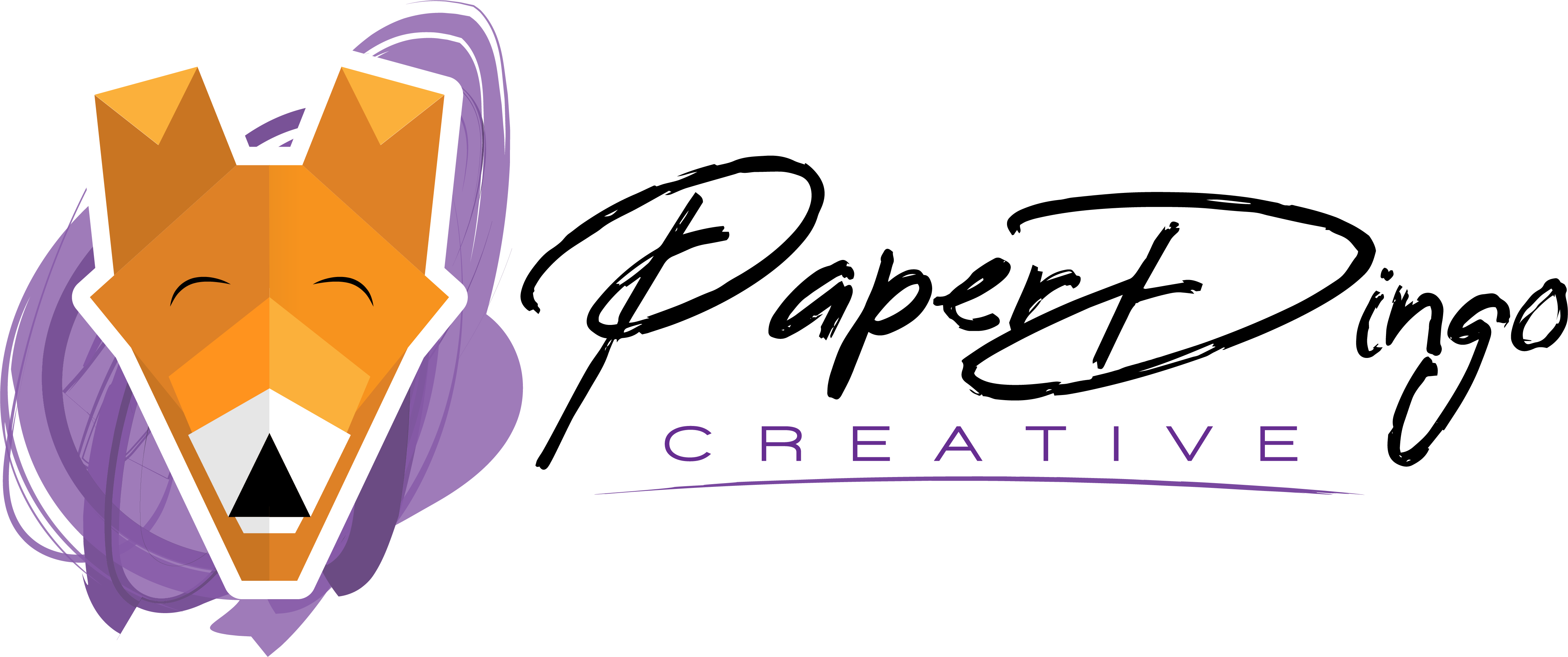You want people to discover your company. You want them to buy your products or use your services. You want them to tell their friends and build your customer base. You can’t do that without marketing.
What is marketing?
Marketing is a collection of the tools, processes, and strategies that your business uses to promote your products, services, and brand. It includes consumer research and product design, pricing, distribution, and advertising. At Paper Dingo Creative, we typically meet our clients after the research and development process, so that’s what we’re going to talk about here.
There are many types of marketing/advertising, the majority of which fall into three categories:
- Traditional: television, print, and radio
- Digital: SEO, social media, email, mobile, pay-per-click, and websites
- Content: blogs, videos, ebooks, and webinars
Each of these enhance your business in different ways and the best marketing strategies use a combination of types to drive sales. Your billboard, Facebook page, and how-to articles work together to help your brand and business grow. Without these things, your company won’t get very far.
Consider this:
You have an amazing hot sauce recipe. All your friends love it and tell you people would definitely buy it. Inspired, you create Sizzle Sauces, design a logo, and batch up 100 bottles. You head outside with your product, and set up a table and signs.
A few people may stop by. (Probably to ask why you’re running an adult version of a lemonade stand.) Some may even buy a bottle or two. But you’re only targeting the people who are physically passing your table. At day’s end, you still have 98 bottles … and a sunburn because you forgot sunscreen in all your excitement.
What if instead you set up a Facebook page, print off some business cards, and write a how-to on hot sauce bottling to post online and include with sales? Your potential customer base grows exponentially.
Marketing bridges the gap between your business’ headquarters and the customer’s home. It’s the avenue you need to reach anyone who may be looking for what you’re selling, and not just the people you see face to face. It captures your customers’ attention, persuades them to purchase your product, and provides them with a specific action to take (i.e. join a mailing list, book a massage, purchase a cup of coffee).
Let’s take a more detailed look at six of the best reasons for why your small business needs marketing.
1. Build Brand Recognition
If no one knows you exist, they can’t buy from you. Tell potential customers who you are, what you offer, and why they should spend money with you. Marketing builds brand recognition by increasing visibility, promoting your company image and values, and establishing trust and credibility in you and your product.
You made sure to include your logo on your business cards, hot sauce how-to, and Facebook page. Not only does everything match (adorable!), it helps people find you specifically wherever they’re looking for you.
2. Connect with Customers
Email, social media, mailers, and the like, connect your business to current and potential customers. These channels can build relationships with customers, remind them you exist, and educate them on new products, services, and offers.
You can also use marketing to learn more about your customers and what they like or respond to. Ready to add a new flavor to the Sizzle line? Post to your Facebook page asking if your followers would rather try a mango or pineapple sauce.
3. Compete with Other Businesses
If you don’t catch leads and customers, your competitors will. Investing in local marketing puts you in the minds of consumers in your area and helps you establish credibility in your industry so you can beat the competition. Taking your efforts digital puts you on the same level as national and regional companies.
Remember your hot sauce bottling tutorial? Jodie Smith found it on your Facebook page. Harlow’s Hot Sauce and BBQ doesn’t even have a Facebook page. Jodie’s ordering three bottles from you because she knows you understand how your product is made.
4. Keep your Business Relevant
Find out where your customers are and maintain connections with them there. Participate in conversations that are happening and start some of your own. Keep up with what’s taking place around you and take advantage of it.
React to changing trends when they’re popular. What’s cool one week is embarrassing the next. You want to stay on people’s minds, and not for being a “fail.”
5. Measure Success
This is where digital marketing specifically stands out. Digital marketing has its own built-in measurement system to see if what you’re doing really even matters, something we all ask ourselves from time to time. Email, social media, paid advertising, and websites all collect tangible data that allows you to determine what people want to see, learn, or purchase from you, and also what they don’t.
6. Boost Sales
The success of a small business is in its ability to grow and remain profitable. Putting a mix of marketing tools together expands your target market, increases revenue, and enables your business to expand. You dropped a few business cards off at your nail salon, daughter’s day care, and local farmers market. Two people have already emailed you wanting to know more.
Marketing Matters
Marketing is a vital tool for any business. It’s just as important as your inventory, shop, and bookkeeping. The right marketing strategy can be the difference between a business that booms, and one that never makes it off the ground.
Marketing educates, builds awareness, establishes new connections, and strengthens current ones. Your business simply will not grow without it. When you can’t be sitting at the end of every driveway hustling your hot sauce, marketing puts you in everyone’s tv, radio, mailbox, and smart device.
Looking to market your small business more effectively? Email Paper Dingo today for a free consultation!
[/et_pb_text][/et_pb_column][/et_pb_row][/et_pb_section]
